Our global society is grappling with a myriad of challenges — from artificial intelligence and its rapid development to the effects of climate change and aging populations — that require bold, innovative solutions. As these issues grow in urgency and complexity, it is up to universities to foster global citizens who can contribute to the international community by utilizing their expertise for the betterment of all.
Against this backdrop, Keio University has developed interdisciplinary frameworks to foster students capable of negotiating the complexities of global society, as well as hubs that support cutting-edge research in artificial intelligence, life sciences, and other fields. Drawing from its rich history and traditions, together with an ethos of independence, self-respect and promotion of the social good, Keio University is committed to creating a better future by proactively pursuing research and education initiatives that address today's most pressing issues.
Redefining globalization
For Keio University, educating students capable of leaving a positive mark on the world is integral to contributing to global society. University President Akira Haseyama believes that the process of finding ways to accomplish this represents an opportunity to reevaluate the concept of globalization and its legacy.
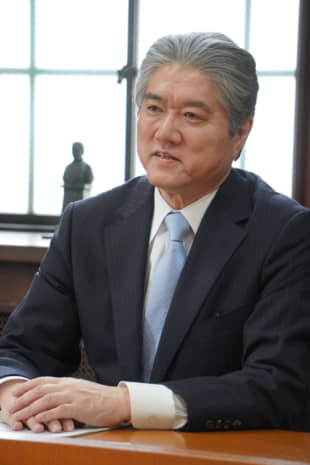
"When we say 'globalization,' we often refer to the flow of people, resources, goods and capital across territories," Haseyama explained. "The term was initially used to refer to contemporaneous economic patterns, different from those in the 19th and 20th centuries when England and the U.S. exerted dominance across the globe. I believe we are now at a point where we can reconsider what globalization has meant for all countries."
This reevaluation of globalization extends to the role of Japanese universities. According to Haseyama, globalization presents challenges for Japanese universities because it tasks them with preserving their identity while adapting to global standards. One of these standards is the establishment of English — the academic world's lingua franca — as a universal language across institutions.
"Establishing English as a universal language presents unique and considerable challenges in Japan, where the principle language of education from the elementary level through to university remains Japanese," said Haseyama. "Just as Latin was the common language among academics in the Middle Ages, so now is English the sole universal language among academics today.
"Japanese is nevertheless an incredibly versatile language," he continued. "Logographic characters and phonetic lettering systems have enabled a wide array of advanced materials across all fields to be precisely translated into Japanese, resulting in a rich accumulation of knowledge. But in order to meet the demands of our times, we need to be ardent about outputting our research in English so that it is accessible to the international community. While Japanese researchers in the natural sciences have grown accustomed to publishing and presenting their work in English, it is very important for us to encourage researchers in law, the humanities, and the social sciences to do the same."
Diverse research
Keio University's research is characterized by its unique, interdisciplinary qualities. The university's activities in haptic robotics are an example of such research. Haptics refers to technology that uses vibration, motion and the application of force to make robots capable of delicate touch; in the field of medicine, this technology can be used to conduct remote medical procedures. Keio University has the School of Medicine as well as the Faculty of Pharmacy and Faculty of Nursing and Medical Care — a rare combination among private universities in Japan — making it a key environment for medical specialists and engineers to collaborate on innovative interdisciplinary research.
Demonstrating Keio University's role as an international hub for interdisciplinary research is its designation as the base of the Association of Pacific Rim Universities (APRU) Population Aging Program. Keio University is an ideal location for this program, given that Japan is home to one of the world's most rapidly aging societies. It's Center for Supercentenarian Medical Research and Research Center for Financial Gerontology both use medicine, economics, and engineering to address the challenges posed by an aging society.
AI for social good
According to Haseyama, an important aspect of interdisciplinary research is the role of the humanities, social sciences, and law in establishing an ethical framework from which to assess how technology is applied. Developments in robotics and AI open up new possibilities to improve people's quality of life, but such groundbreaking technology will also likely affect social, economic and diplomatic relations. Haseyama asserted that scholars across diverse fields must work together to ensure that these technologies are ethically implemented. They must also formulate appropriate regulations to prevent any negative social effects these technologies may bring.
Keio University has therefore established itself as a hub for discussions centering on AI's social and ethical implications. In 2018, the university led an international collaborative project between Google and APRU titled "AI for Everyone: Benefitting from and Building Trust in the Technology," which brought together experts from member universities in Russia, Australia, China, Hong Kong, Japan, Singapore, Mexico and Chile to discuss an array of issues including AI development, ethics, and governance.
"It is common belief that AI, robotics, and the 'internet of things' will improve our lives. However, there are also specific concerns about the development of AI, in particular that it will usurp human labor," Haseyama said. "I believe it is the role of universities to address and explore these concerns. Industry will naturally focus their resources on research and development. However, if this development leads to adverse consequences for society, it will be the responsibility of the government to implement necessary regulations. Universities act as an intermediary in the triumvirate formed with industry and government," he continued. "Among their responsibilities is determining how to regulate certain technologies based on safety and social considerations and proposing guidelines to government bodies. That being said, universities should not act as a third party between industry and government, but should work alongside them from the start to find the best solutions," he observed.
These discussions will continue to evolve in "AI for Social Good," a collaborative project established by APRU in 2019 in partnership with Keio and the United Nations Economic and Social Commission for Asia and the Pacific (ESCAP), and comprised of researchers from Japan, Australia, Singapore, India, Thailand, Korea, and Hong Kong. Keio Vice-President Jiro Kokuryo moderated at the project's kick-off meeting on June 5 and is coordinating on academic fronts. This project will not only feature the findings of individual researchers, but will also represent APRU in presenting policy recommendations to ESCAP.
On the world stage
Next year, Japan will host an event that will see people from around the world converge on its soil — the 2020 Summer Olympics and Paralympics. In the run up to this event, Keio University will host the preparation camps of the British Olympic and Paralympic teams. Keio's involvement with the British teams will promote international exchange between university students and visitors from overseas, as well as encouraging enrollment among prospective international students. The chief medical officer of these teams will visit in August and chair a seminar for specialists in the School of Medicine, paving the way for potential partnerships to address safety, congestion and other pressing issues for the upcoming games.
The Tokyo 2020 Paralympics will showcase the potential of disability innovation to impact the lives of disabled people globally. Alongside the games, Keio University, the Global Disability Innovation Hub and the British Council will co-host a ground-breaking international summit to explore the latest technologies, research and thinking in this rapidly expanding field.
Further exciting events as part of the Graduate School of Media Design's (KMD)Superhuman Sports Project headed by associate professor Kouta Minamizawa set to take place in the next year also tie-in with the Global Disability Innovation Hub's activities. This is a project to create new and inclusive sports using augmentation and technology to transcend competitor's physical and cognitive abilities as well as age groups.
Keio, along with 10 other universities from eight countries, is a founding member of the University eSports International Initiative, the name that APRU currently uses to refer to the APRU eSports project. However this project may change shape after a meeting of all founding members set to take place at UCLA in June. E-Sports refers to competitive video games, and while recent attentions have focused on their potential to generate both profitability and adverse health effects, there remains a dearth of academic research on the subject. E-Sports has established a strong presence in modern society and thus invites consideration from economic, legal, and ethical perspectives. While it remains to be seen what the future holds for this field of research, Keio University will surely be on the front lines in addressing the contingent issues that global society will face.
Whether it is establishing an ethical framework for AI development, addressing the challenges of an aging society or using sports to break down the barriers that divide us, what underpins Keio University's wide breadth of international collaboration is its drive to find innovative solutions to dilemmas and ways to reconcile invested parties. "As cultures and countries interact with one another, conflicts will inevitably arise," said Haseyama, concluding by invoking Keio University founder Yukichi Fukuzawa's emphasis on dialogue to find creative, peaceful society, and the importance of leveraging Keio's unique know-how.
Keio University
Address: 2-15-45 Mita, Minato-ku, Tokyo 108-8345 Japan
Tel: +81 (0)3-5427-1899
E-mail: [email protected]



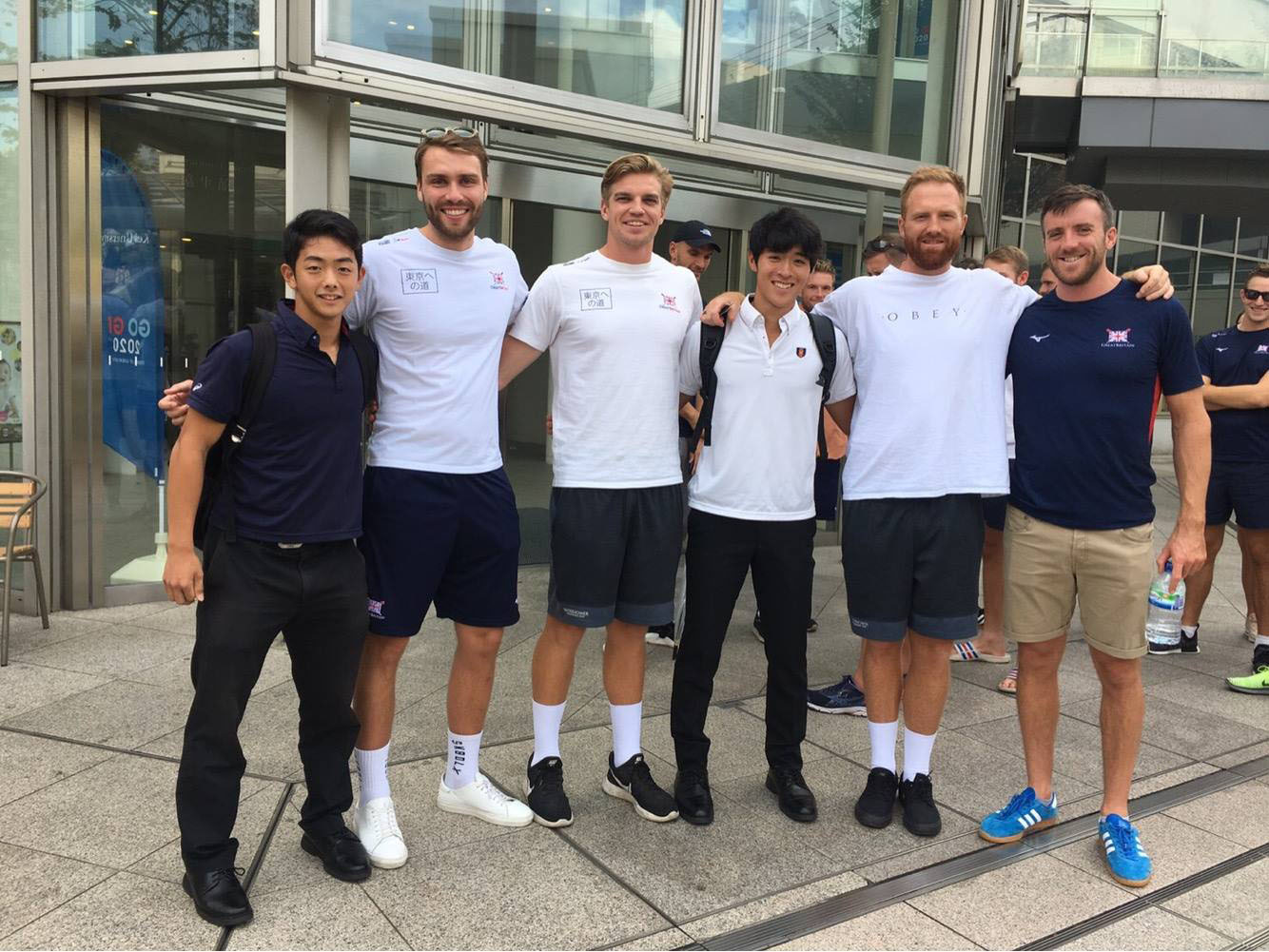
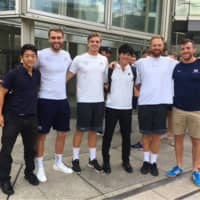
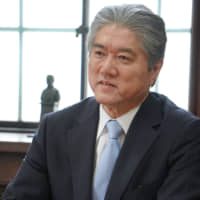
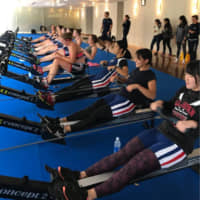















With your current subscription plan you can comment on stories. However, before writing your first comment, please create a display name in the Profile section of your subscriber account page.